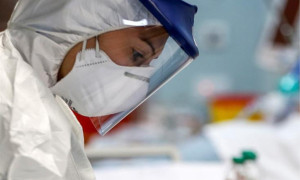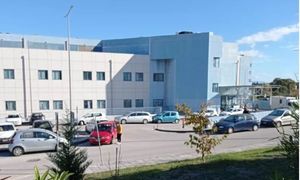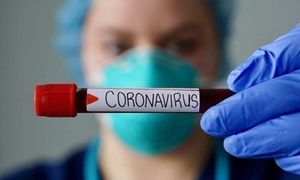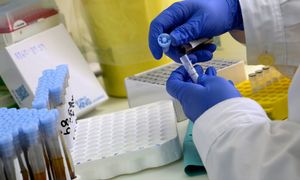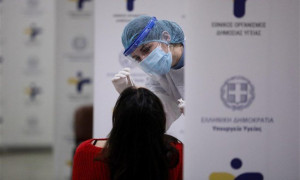Minister of Health outlines vaccine plan for the country

coronavirus
19 Nov 2020
/ 09:58
ATHENS. Health Minister Vassilis Kikilias presented the vaccination plan for Greece on Wednesday evening.
The Minister of Health presented the plan along with the President of the National Vaccination Committee Maria Theodoridou and Primary Healthcare General Secretary Marios Themistokleous.
Mr. Kikilias said that 1,018 vaccination centres will be set up using existing Primary Healthcare facilities, including 203 health centres and regional clinics, which will be able to vaccinate 2,117,440 people per month.
The EU will have 1.1 billion vaccines which will be distributed at the same time, at the same price and in the same dosages-to-population ratio to all countries.
The Minister said that the vaccine will be acquired centrally by the European Union, which has reached agreements for its supply with six pharmaceutical companies. The EU will also absorb part of the vaccine's pricing, so that EU countries can get it at a lower price
The plan has already been drawn up and approved by the Prime Minister Kyriakos Mitsotakis.
Following approval by the European Medicines Agency (EMA) health system workers will receive it first, along with safety workers and senior citizens living in homes followed by those over 65 years of age.
The general population will be vaccinated a year after the start of Phase 3 clinical studies, in line with international specifications agreed by all the international authorities (FDA, EMA and other approving organisations).
A special register will be set up for those that have been vaccinated so that they can receive timely notifications for the second vccination by SMS or e-mail.
According to the Prime Minister's announcement, Greece will receive 25 million vaccines - enough to cover the the two vaccinations required for the whole population.
The vaccines will be distributed based on population via a special mechanism set up by the EU. Initially the vaccines from Pfizer/BioNTech, AstraZeneca, Moderna and CureVac will be distributed and from Johnson & Johnson in spring 2021.
Following approval from EMA, in the first phase Greece will receive 1 million vaccines for emergency needs to cover the 500,000 population which is most in need.
Mr. Kikilias said that 1,018 vaccination centres will be set up using existing Primary Healthcare facilities, including 203 health centres and regional clinics, which will be able to vaccinate 2,117,440 people per month.
The EU will have 1.1 billion vaccines which will be distributed at the same time, at the same price and in the same dosages-to-population ratio to all countries.
The Minister said that the vaccine will be acquired centrally by the European Union, which has reached agreements for its supply with six pharmaceutical companies. The EU will also absorb part of the vaccine's pricing, so that EU countries can get it at a lower price
The plan has already been drawn up and approved by the Prime Minister Kyriakos Mitsotakis.
Following approval by the European Medicines Agency (EMA) health system workers will receive it first, along with safety workers and senior citizens living in homes followed by those over 65 years of age.
The general population will be vaccinated a year after the start of Phase 3 clinical studies, in line with international specifications agreed by all the international authorities (FDA, EMA and other approving organisations).
A special register will be set up for those that have been vaccinated so that they can receive timely notifications for the second vccination by SMS or e-mail.
According to the Prime Minister's announcement, Greece will receive 25 million vaccines - enough to cover the the two vaccinations required for the whole population.
The vaccines will be distributed based on population via a special mechanism set up by the EU. Initially the vaccines from Pfizer/BioNTech, AstraZeneca, Moderna and CureVac will be distributed and from Johnson & Johnson in spring 2021.
Following approval from EMA, in the first phase Greece will receive 1 million vaccines for emergency needs to cover the 500,000 population which is most in need.






